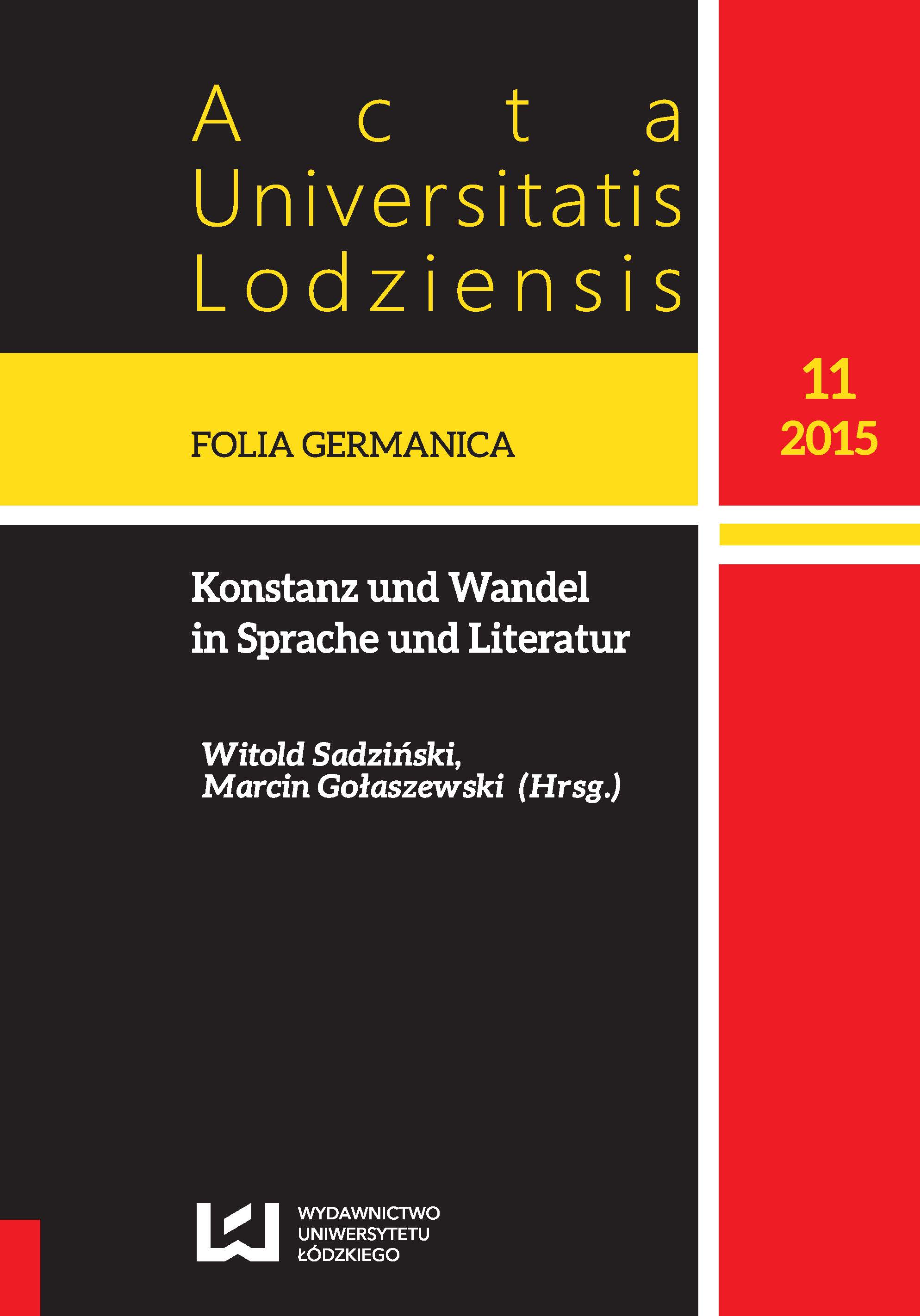„Dichtung kann, in geheimnisvoller Weise, tiefste Ohnmacht spüren lassen und letzte Macht zugleich ausüben.“ Rudolf agelstanges Sonettenzyklus Venezianisches Credo (1945)
"Poetry, in a mysterious way, can simultaneously impart deepest impotence and ultimate power“. Rudolf Hagelstange’s cycle of sonnets Venezianisches Credo (1945)
Author(s): Jörg ThuneckeSubject(s): German Literature, Philology, Theory of Literature
Published by: Wydawnictwo Uniwersytetu Łódzkiego
Keywords: The Third Reich; Sonnet Form; Rudolf Hagelstange; Inner Emigration
Summary/Abstract: The origin of Rudolf Hagelstange’s (1912–1984) cycle of sonnets Venezianisches Credo was Venice, while he was temporarily stationed in northern Italy in 1944 as a soldier. Twenty-four sonnets were written in the lagoon city, four more in Breganze, the remainder in Verona, where a limited edition was published in spring 1945, after some of the sonnets had already been distributed in military circles over some months. This contribution attempts on the one hand to analyze Hagelstange’s choice of the sonnet–form – a classical type of lyric poetry, guaranteeing tradition and continuity –, claiming that at that time sonnets had become a fashionable form of oppositional poetry; on the other hand, the content of the three dozen sonnets will be analyzed, in which, over long stretches discordance prevails. For the author initially presents a damning indictment of the criminal activities of the NS-regime, until he eventually proclaims – with reference to Schiller – that the contemporary spiritual and moral crisis can yet be overcome by an ‘other Germany’. In the final analysis, Hagelstange brilliantly succeeded – by means of an interaction of continuity and dissonance – to merge aesthetic and ethical aspects and thereby managed to create one of the most outstanding lyrical documents near the end of World War II.
Journal: Acta Universitatis Lodziensis. Folia Germanica
- Issue Year: 2015
- Issue No: 11
- Page Range: 177-192
- Page Count: 14
- Language: German

